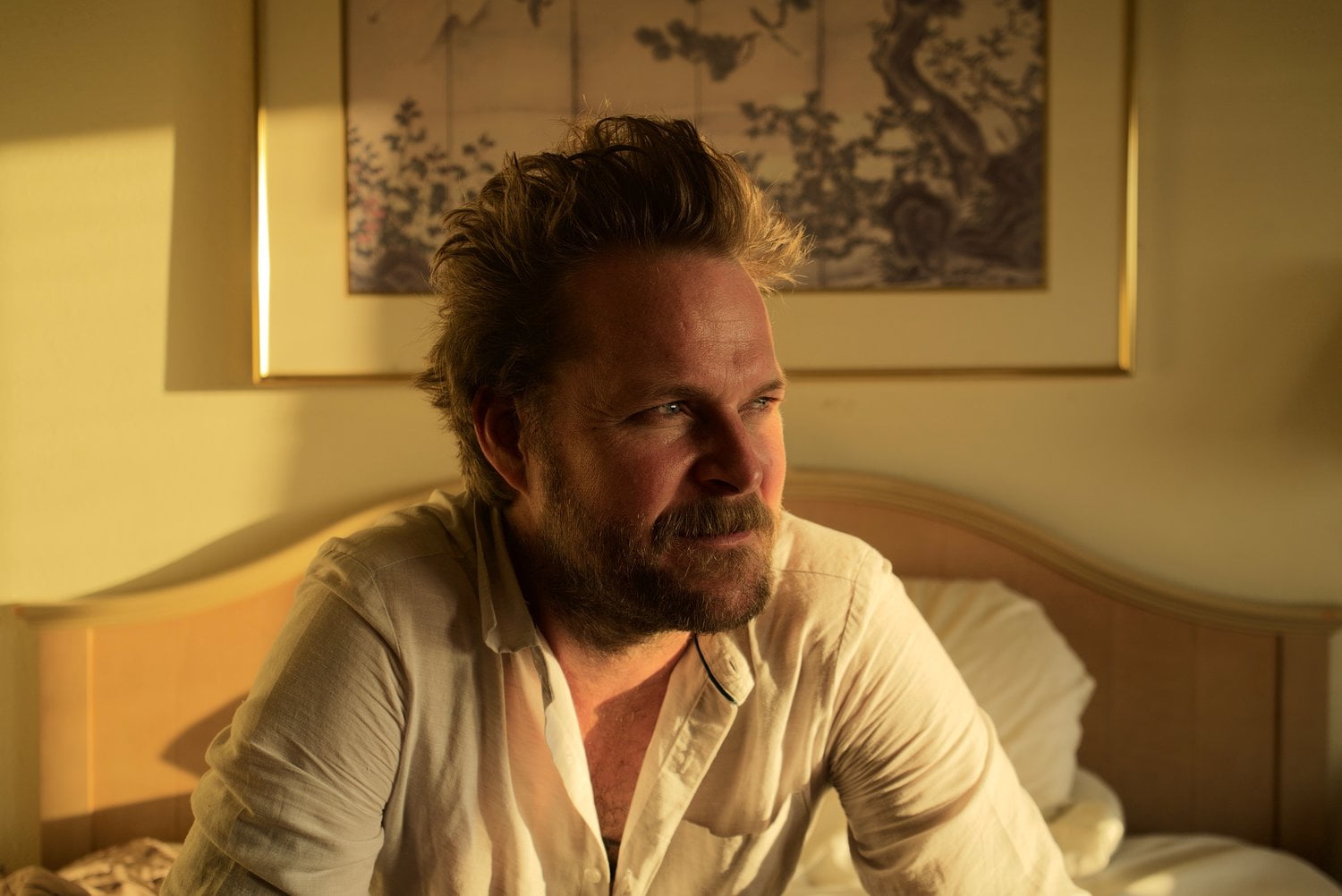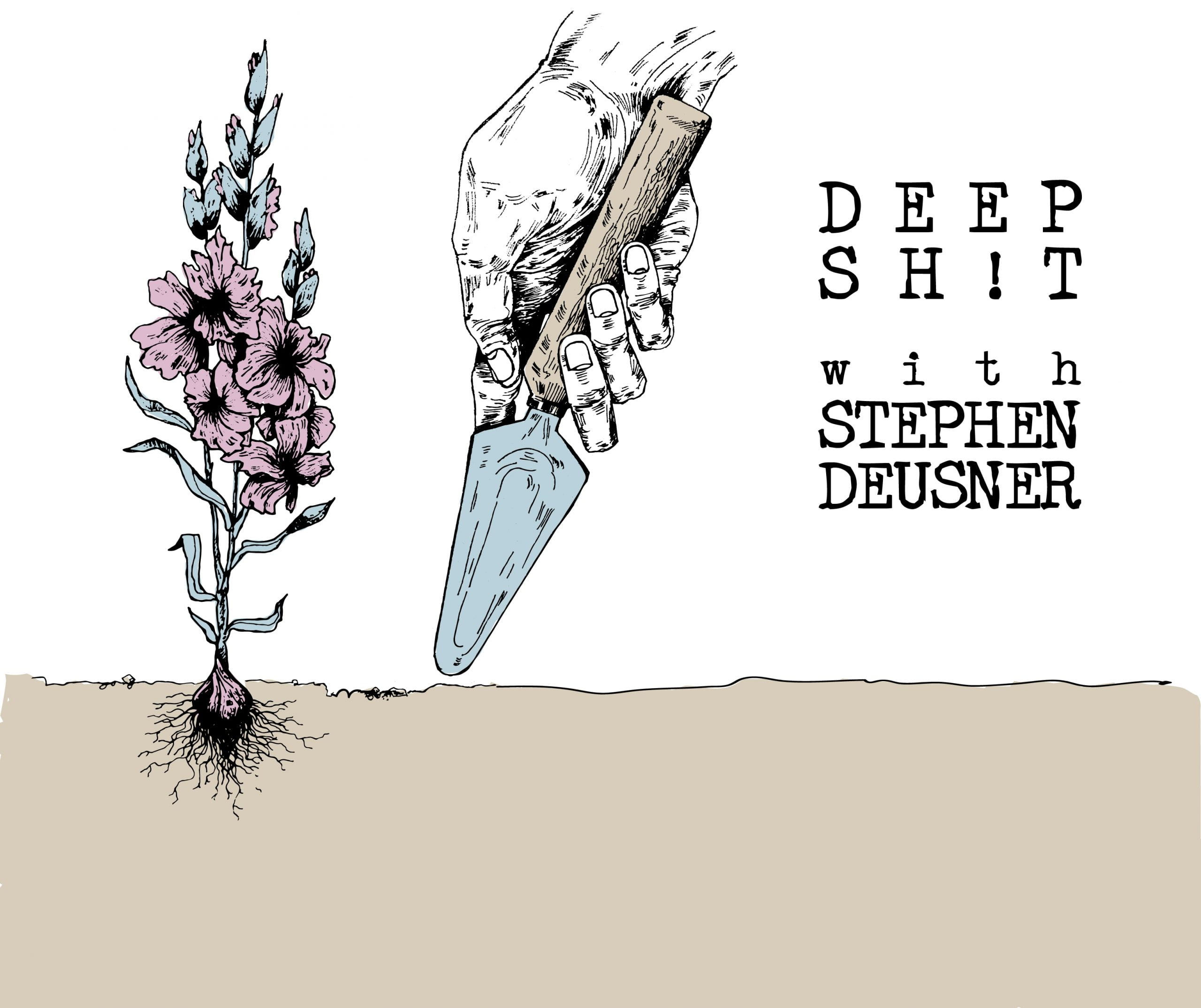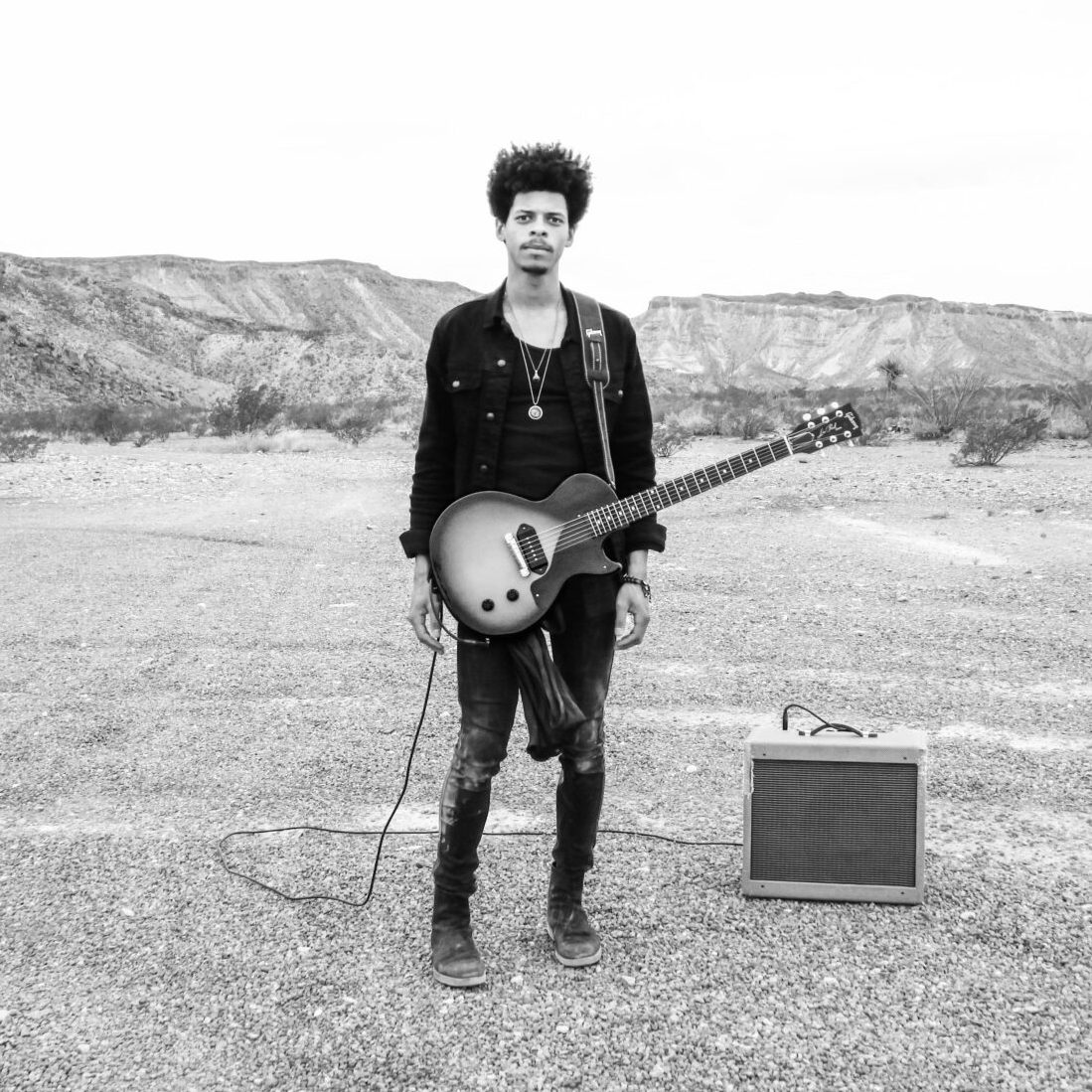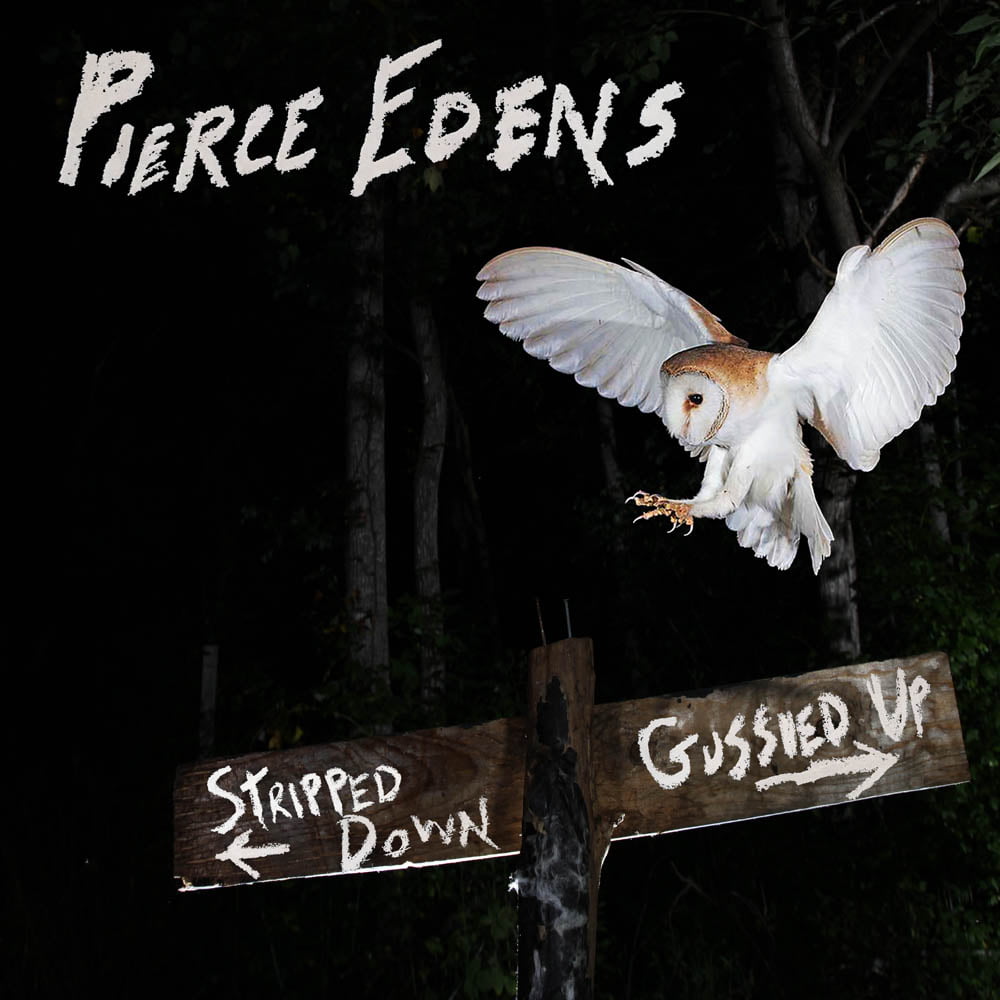North Carolina figures prominently into the music that Tamara Lindeman and M.C. Taylor make as the Weather Station and Hiss Golden Messenger, respectively. Its musical traditions as well as its current scene have shaped their songs …
Taylor moved to North Carolina about 10 years ago, following the demise of his band, the Court & Spark. Music became more than a hobby but less than a full-time job, and he wasn’t necessarily thinking about a career in the industry when he started making music with a few friends as Hiss Golden Messenger. But then he made an album whose failure ensured his success.
“I made an album called Poor Moon at the request of a small record label in London, and they didn’t like it!” Taylor says with a laugh. “That was a blow to my ego, and I thought, ‘What am I gonna do now?’” Full of lively country-folk songs with imaginative arrangements and hard insights on the nature of faith, the album was finally released by a North Carolina indie label called Paradise of Bachelors. “When Poor Moon came out, it was a surprise to a lot people that I even lived in North Carolina. I had lived there for a couple of years, but nobody really knew who I was.”
The record left a big impression on Lindeman, whose own music career was just getting started. “I was invited down to Raleigh to play the Hopscotch Festival around that time,” she says. “I was shocked to be invited. It was the first time anyone had asked me to play a show outside Canada. I was only there for a couple of days, but basically all anyone talked about was Poor Moon. I went to a radio station to do an interview, and they were playing that record. I went somewhere else, and it was playing there, too. It was the talk of the town.”
Lindeman had never played outside of Canada before. “I played a show with Hiss Golden Messenger and the Mountain Goats, and that’s when I met all these musicians. They were like, ‘Come down and make a record with us!’ They were very convincing.” While in town, she recorded songs for an EP with Taylor and other regional musicians. Eventually, she. likewise, signed with Paradise of Bachelors.
Both found the region a warm and inviting place to make music, and both have spent the ensuing years touring and recording almost nonstop. As the center around which Hiss Golden Messenger revolves, Taylor writes incisively and movingly about the joys of music and family, the South as its exists and the South as he imagines it. His latest, Hallelujah Anyhow, finds reasons for celebration amid the wreckage of America in the late 2010s. Similarly, Lindeman’s new album, simply titled The Weather Station, is a vivid account of a year in her life; it’s a collection of songs that burst at the seams with words and ideas. The pair remain avid fans of each other’s work.

I always hate the word “autobiographical” or even something as vague as “personal,” but these two records do feel like they’re from very fixed perspectives.
Tamara Lindeman: For sure. My record was all finished, and I was thinking a lot about what it meant to me. This record is my way of expressing an understanding that things will not be okay. It’s my way of realizing that, somehow, you figure out how to be okay when things are not okay. It was funny: When I saw your record announcement and saw that the title was Hallelujah Anyhow, I was like, “Oh man, that’s a perfect title! I wish I’d thought of that title myself for my record!” That gets at something that I was trying to express.
M.C. Taylor: Yeah, I have a handful of people in my life who were like, “Damn, that’s a good album title!” [Laughs] Let me say, I think your record is so brilliant. I am just like totally in love with it. It has a sadness and sweetness, at the same time. Anyone that can figure out how to speak sadly and sweetly at the same time is always going to have my heart. That’s a language I am so curious about, and it’s a realm that I’m trying to work in. That has almost been my entire mission with Hiss Golden Messenger — how to convey light and dark at the same time, how to encompass as much richness of emotion in three to five minutes. And your record does that so, so well. There’s a certain propulsive, almost breathless feeling to some of the songs, like you’re trying to get more emotion in than the song can quite allow, which I find really, really moving. How did you make this record? How long did it take you to make this, and what was your process with it?
TL: It was actually pretty simple, in a way, because it was the first time in a long time that I just had a plan and a vision. I came home from my first tour in Europe and I just started writing songs. They were totally different from anything I’d ever done. And I was like, “Alright. This is going to be a record, and it’s going to have this kind of bass playing, it’s going to have this kind of drums. It’s going to have strings. So we’re going to have to write string arrangements.” I just had to go through all of these studios until I found one that felt right and picked the musicians.
We recorded in Montreal at a studio called Hotel2Tango, which is a classic — all the Godspeed You Black Emperor! and the early Arcade Fire stuff was done there. It was honestly quite simple: I just went in and recorded it as a trio, and then we did overdubs and strings and mixed it and mastered it. It wasn’t really a wild scenario of recording.
MT: It’s nice when it works that way.
TL: Totally. That hadn’t happened in so long, where I just knew the vocal sound I wanted, I knew the guitar sound I wanted. It was a matter of learning to not listen to all the other voices around me. I had to tell myself, “Alright, this is what it’s gotta be.” And that’s not something that I’ve ever known how to do before, so it was a funny battle. It was like, “Great idea, but I’m not gonna listen to it.” That kind of thing. How was your record made? You seemed to make it really quickly.
MT: It was the same, pretty much. We set aside a week to do the main recording and as many of the overdubs as we could, and then we had a couple more days to add all the minute stuff we didn’t realize we were gonna want in the first week. Then we mixed it in three days and mastered it. The whole thing didn’t take more than two weeks. Fortunately, various versions of the band had played most of the songs a bunch of times. We had been on a bunch of tours and were starting to creep new songs in, because we knew we wanted to make this new record. Honestly, by the second day of that first week, all of the basic tracks were done, which I was surprised by. I think it’s a testament to the people in the band — and also a testament to Brad Cook, who produced this record with me. He had a very optimistic vision — more so than me, I would say — about how much we could accomplish. And we did it!
TL: Amazing.

MT: There’s really something huge to be said for making a record quickly, following your first thought, and living with the moments you put to tape. I’ve watched friends and peers struggle to make the “perfect record,” and they’ll take anywhere from three to five years to do it. That really has a detrimental effect, I think. I wanted a different feeling. Because you just can’t make a perfect record! That’s not even something that should even cross your mind. But the options are so unlimited now that it gives us the illusion that we can put everything in its right place.
TL: Absolutely. If you listen to any of the records that we all love, especially when you’re in mixing mode, you’re like, “Oh, man, if I was given the track, I’d bring down the backing vocals, change the drum sound.” That sort of thing. The records you love, they’re always so imperfect.
MT: Totally. What we really changed, when we went into the studio, was that we tried to really understand the sound each person was making. We knew what those sounds were at the front end of the process: I knew what guitar was going to work on which song; we knew what Darren Jessee’s drums sounded like. I think that’s why we were able to mix the record in two or three days: We didn’t do anything other than mess with levels. There are definitely some moving parts and some arrangement things that we did on the record, but all of it was meant to serve the song. So it’s transparent in that way.
That’s how I feel about your record, too. When I really started listening to arrangements on your record, I realized there’s a bunch of stuff on there — string arrangements, piano lines — but when I am just listening with my unconscious mind, it’s a super straight-ahead record. Everything the band is doing on your record is following the lead vocal melody. It’s almost like the rhythm section is chasing your voice around, which I love. Your rhythm section is so fucking good! Is that Ian Kehoe playing drums?
TL: Ian plays with me and is my favorite drummer, but because he’s my partner, I was really anxious about having to be the boss. I’d never been the boss of a band and not screwed it up. But I knew I had to be the boss. We wound up talking it through, and I told him I didn’t think I could have him be the drummer because it’s too much emotion in the room. It’s too many feelings because he’s my partner. I just needed to go in with this different way of being as a person that’s uncommon to the way I am in life. So I wound up using a fellow named Don Kerr, who is amazing. He’s in his 50s and he’s been around every block there is to go around. He’s produced records, he’s written records, he’s played on records, toured. So he wound up being a really great presence in the room with the maturity to be patient with me, when I was making a mistake or forcing us to play a song for the 30th time. That wound up being the right decision and, since then, Ian and I have gotten to a place where I think we could make a record together. We weren’t ready then.
MT: It sounds like maybe he has listened to your other records to get that sort of galloping thing that you’re very good at. It’s a very specific type of drumming.
TL: It is, yeah. We talked about this a lot, too. I did play with a few different drummers, but I realized I didn’t want modern drums. I didn’t want a modern drumming style or sound. When we were making the record, I was obsessed with this Impressions record and I kept thinking, “More tom fills!” I became obsessed with tom fills. In the ‘60s, people played tom fills constantly. If you listen to a Bob Dylan record, the drummer is literally just constantly playing fills and barely playing cymbals.
MT: No cymbals! That’s definitely a big thing with us, too. We don’t play any cymbals. There are some times when we take the cymbals out of the room entirely. Everybody that plays in Hiss is very no cymbals. It’s a thing. Too much cymbals can really destroy a record.
TL: And it’s hard to record them, too, and get them to sound good without them taking over the rest of the band. Something I was thinking about: Rhythm is so important in your music. It feels like it’s almost more rhythm over melody.
MT: I don’t know exactly where that came from. I always thought of my dad as someone that had really good time, and I was always just really fascinated with rhythmic music. When I was a kid, there was this moment when my friends had to pledge allegiance to either heavy metal or rap, both of which were kind of new at the time. “Are you into rap or into heavy metal?” It never occurred to my friend group to just be into both. All of my friends got into metal, and I was like, “You guys are crazy! Rap is clearly so much better! Metal is lame! There’s no rhythm to metal.” This is what I was thinking when I was like 10 or 11 and, if I’m being totally honest, I still sort of feel that way. It was something important to me, just that backbeat.
TL: Listening to your music, of course it would be rap and not heavy metal. The groove is there, for sure.
MT: It feels very clear to me. I’ve grown and changed and all kinds of stuff, but there’s still a clear connection to the early backbeats I heard when I was a kid. That’s still stuff I love, and that’s the foundation of my musical brain. If I hear a record, no matter how brilliant the writing or the melodic content is, if it doesn’t have a clear rhythmic identity, then it’s almost guaranteed that I’m not gonna connect with it. I always feel like a rhythm section has to have a purpose. They can’t just be in a band because bands have bass players and drummers. To my thinking, the rhythm section is the most important part of the band, so they have to carry something really integral.
TL: Right. Lots of music is very rhythmic without drums or bass. But it’s funny you like my music because, as a musician, I have terrible rhythm. It’s something that I’m working on and thinking about a lot, and I have so much respect for rhythm. My rhythm is very strange. What I hear as being straight is totally not straight. And, to me, if the song doesn’t speed up or slow down, it sounds wrong.
MT: That’s not really what I’m thinking about when I’m thinking about rhythm, though.
TL: You said purpose.
MT: Purpose, yes. There’s a confidence to the way a song steps that is rhythmic to me. And that’s why I would maybe push back on you thinking that you don’t have good rhythm, because I don’t know that we would be talking, if you didn’t have good rhythm, honestly. I’ve always thought that your records have incredible rhythm.
I’ll second that. I was listening to “Thirty” today, and it made me feel like I was seeing a magic trick. I kept wondering, “How did she do that?”
TL: Well, that song starts out at around 100 beats per minute and it ends up at 120. It speeds up so much. That was the take where we went in and weren’t really sure of the song yet, so we just played it too fast. But it felt like it had this great spirit of discovery. The other takes just didn’t have that.
I want to double back to something that was said a minute ago about sweetness and sadness. I think that contrast applies to both of these albums, but I wonder how that affects the song and how you live with it over a long period of time. Does that mean that there are still things to discover about a song, even after you’ve toured it for a few years?
MT: Definitely. I don’t think I’ve ever put a song on a record that I knew everything about. I’m only really interested in ongoing work on songs that I don’t fully understand. Part of that might be feeling like the lyrics are a little unfinished, but I can’t quite think of the exact thing. Over time, it’s that ambiguity that leads to new understandings. The relationship with a song has to be an interesting and an ongoing one, in order to sing it every night in a way that feels genuine. And I need an emotional richness to a song to be interested in singing it every night.
TL: Sometimes, if I look back, I can see that I’m always trying to out-run myself in writing, because there’s a part of me that’s a perfectionist and wants to write a perfect song. But if I wrote a perfect song, I know I would hate it. I need the mystery, like you’re saying. The songs that stick with me are the ones that I don’t fully understand, or they speak to something in my life that I don’t fully understand, so they have this mystery about them. Those are the ones that pull me in.
MT: I agree.
TL: And in further answer to your question, I was thinking yesterday about ambivalence — about how I don’t even know that it’s my worldview, but my song view tends to be ambivalent in that I like to present sadness, joy, or whatever is happening and put equal weight on everything about the situation. I’m trying to present everything equally. In my lyrics, I never really make value judgments. It’s the opposite of a protest song, where you’re presenting some ideas and you’re also presenting how to feel about them. There’s a part of me that is just so drawn to a different perspective: “Here is darkness and here is sweetness and here is everything in between, so you can make up your own mind about how you feel.”
MT: I hear what you’re saying. It’s complicated because, sometimes, I can understand your personal perspective in the way you sing the words. Maybe that’s something that you do intentionally, or maybe it’s something you don’t realize you’re doing. But with a song like “Thirty,” I feel like I have a read on the character who’s singing the song, if that character is not you. I feel like I actually do have a slight read on your position about being a woman and being older and everything that comes with that. That makes it more interesting to me, because there is this rub between you trying to present all the facts and the way that you sing it. “Complicit” is another one that works in the same way.
TL: Maybe what it is, too, is that, in presenting all the facets of something, I’m often trying to get at the truth of something that I might not know. I might not know the truth of how I feel about something, and it’s in writing the song that maybe I do come to understand it. Maybe by embracing the aspects of something that I don’t know or feel ashamed about or afraid to express, you come to a truth about it.
It’s like writing to find a question as opposed to writing to find an answer.
TL: Or not writing about how I wish felt. Writing trying to figure out what it is you feel under all the layers of what you wish you were and the way you wish the world was. Which, to me, is uplifting. When I hear your music, it’s uplifting to me because there is a darkness to it. I don’t feel uplifted by music without a bit of sand in it.
MT: As I’ve become an adult and realized that I’m gonna carry these songs with me, I’ve realized that the songs have to be durable enough that I don’t mind singing them. Maybe that’s the weird, backhanded benefit of always flying under the radar: I’ve never had a song that I had to sing. I’ve never disappointed a crowd by not singing a song, I don’t think. And I do sing these songs differently — I mean, you have to, because you change as a person.
TL: That was the lesson I learned when I was playing shows for All That Was Mine, because there was just no way to play the shows other than to play them alone. So I was trapped in my biggest fear, which was to be alone in front of an audience with an acoustic guitar. I’m not a very good guitar player, so I would only play that half-hour of material, those 10 songs, and I wouldn’t play any other songs. So I was just sort of trapped inside this box of this one record. I realized right away I only had myself and my songs to rely on. If I was in a bar and people were talking and it sucked, then I needed to find a way to connect to that feeling of annoyance and then connect to the songs in that reality. Then maybe I could find something very real every night. Those songs had enough complexity to them that I could do that, and I could find how that song was true for that day. And that was how I started to know that they were good songs, because they had enough breadth to hold up.
Photo credit: Rui Oliviera (The Weather Station)



